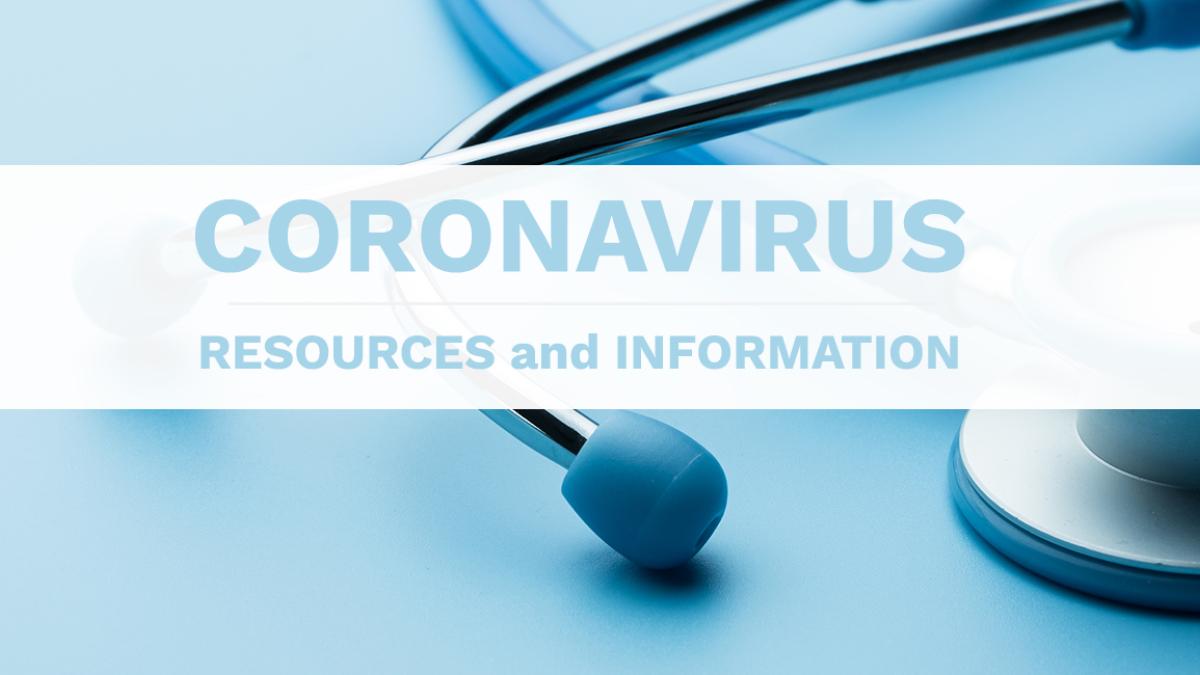Coronavirus Resources and Information

*** Click here to sign up for Coronavirus e-newsletter updates ***
COVID-19 Vaccine
If you are looking for information about getting a COVID-19 vaccination, please visit your county health department's website, which can be found below:
County Health Departments & Health Care Providers
Branch/Hillsdale
Branch-Hillsdale Community Health Agency
ProMedica
Hillsdale Hospital
Eaton
Eaton Health Department
Sparrow
Jackson
Jackson Health Department
Henry Ford
Lenawee
Lenawee Health Department
ProMedica
Monroe
Monroe Health Department
ProMedica
Washtenaw
Washtenaw Health Department
University of Michigan
St. Joe's
State Vaccine Resources
State Dashboard
Michigan Coronavirus Vaccine Homepage
Veterans Resources
COVID-19 vaccines at VA
Legislative Response
- On March 4, 2020, the House passed a bipartisan emergency supplemental package that includes approximately $8 billion in funds designed to aid states and the federal government in the fight against the Coronavirus. It was signed into law on March 6.
- On March 14, 2020, he voted for the Families First Coronavirus Response Act, bipartisan legislation that provides free Coronavirus testing and targeted paid sick leave for affected workers and caregivers. It was signed into law on March 19.
- On March 27, 2020, the House passed the Coronavirus Aid, Relief, and Economic Security (CARES) Act, a $2 trillion emergency relief bill that will provide direct payments to Americans, assistance for small businesses, and support for hospitals and health care professionals. It was signed into law on March 27. Learn more about the specific provisions, and funding disbursements from the CARES Act at walberg.house.gov/cares-act.
- On April 23, 2020, he voted for the Paycheck Protection Program and Health Care Enhancement Act to replenish emergency relief funds for workers, small businesses, health care providers, and expand COVID-19 testing. It was signed into law on April 24.
- On June 2, 2020, he questioned Governor Whitmer on Michigan’s nursing home policy and federal aid needs.
- On June 24, 2020, he questioned members of the White House Coronavirus Task Force about critical aspects of Michigan’s response to the pandemic including nursing home policy and appropriate steps for schools to take to reopen.
- On September 29, 2020, he signed a petition to discharge H.R. 8265 from the Committee on Rules and bring to a vote on the House floor. The legislation would allow distribution of the remaining $134 billion in current PPP reserves that are now sitting idle after the program’s August 8 expiration.
- On December 3, 2020, he introduced House Resolution 1249, with Rep. Haley Stevens (D-MI) applauding the historic achievement of the prompt COVID-19 vaccine development and calling for COVID-19 vaccine distribution efforts to prioritize frontline workers, nursing home and long-term care residents, individuals with pre-existing conditions, and K-12 educators.
- On December 21, 2020, the House and Senate passed H.R.133 providing additional targeted relief for families, small businesses, and workers.
- On February 2, 2021, he questioned Michigan’s Chief Medical Executive about the vaccine rollout and MDHHS Director Robert Gordon’s abrupt resignation.
- On February 23, 2021 he questioned Pfizer on increasing production of the vaccine to bring greater balance between supply and demand.
Avoiding COVID-19 Scams
- Learn how to tell the difference between a real contact tracer and a scammer. Legitimate tracers need health information, not money or personal financial information.
- Don’t respond to texts, emails or calls about checks from the government. Here’s what you need to know.
- Ignore offers for vaccinations and home test kits. Scammers are selling products to treat or prevent COVID-19 without proof that they work.
- Be wary of ads for test kits. Most test kits being advertised have not been approved by the FDA, and aren’t necessarily accurate.
- Hang up on robocalls. Scammers are using illegal robocalls to pitch everything from low-priced health insurance to work-at-home schemes.
Find additional resources at FTC.gov.
Michigan COVID-19 Donations
The State of Michigan is collecting and managing financial, material and in-kind donations to be used to meet the most pressing needs of Michigan residents during the COVID-19 Health Emergency. All donations will be tracked by the Michigan Community Service Commission, the state’s lead agency on volunteerism. The Commission is the lead for volunteerism and donations management during times of disaster.
Donations can be directed to the Michigan Community Service Commission at COVID19donations@michigan.gov or 517-335-4295.
The Michigan COVID-19 donations will support the delivery of critical community-based services and interventions that address and mitigate the impacts created by COVID-19.
Michigan COVID-19 Volunteers
The State of Michigan has launched a new volunteer website, www.michigan.gov/fightcovid19, where trained medical professionals can register to serve their fellow Michiganders by assisting hospitals in fighting COVID-19. Other state residents also can use the site to find out how they can help in their local communities, give blood, donate money or needed medical supplies, or assist public health officials in tracking infections.
County Health Departments
- Branch-Hillsdale Community Health Agency
- Eaton Health Department
- Jackson Health Department
- Lenawee Health Department
- Monroe Health Department
- Washtenaw Health Department
Additional Resources
- Michigan Department of Health and Human Services
- Johns Hopkins Coronavirus Tracker
- CDC E-newsletter
- CDC: What You Need to Know
- CDC: What to Do If You Are Sick
- State Department Travel Advisories
- Guidance for Higher Risk Populations
- Resources for State and Local Health Departments
- Resources for Healthcare Facilities
- Resources for Farmers
- Guidance for Small Businesses
- FTC Guidance on Avoiding Coronavirus Scams
- Resources for Social Security Recipients
- COVIDView: A Weekly Summary of COVID-19 Activity from the CDC
- House Foreign Affairs Committee Report on Origins of COVID-19 Pandemic